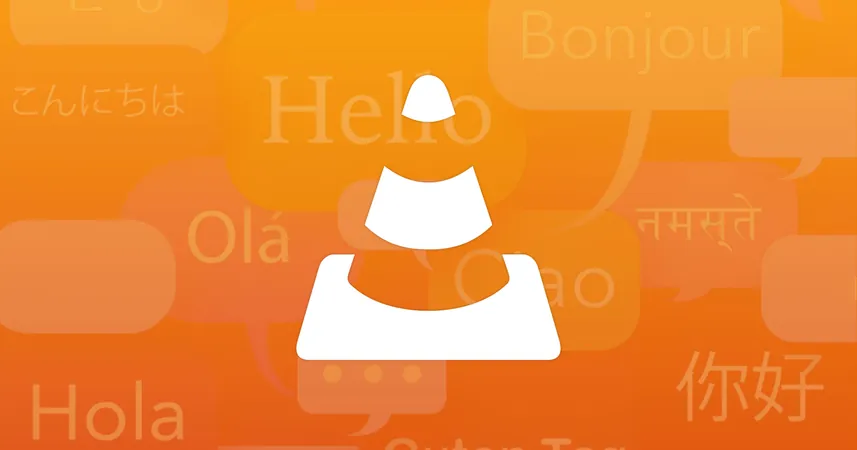
Exciting Developments: VLC Media Player is Integrating AI Subtitling!
2025-01-12
Author: Kai
Introduction
In an astonishing advancement for media technology, VLC Media Player, the beloved open-source platform, is venturing into the world of artificial intelligence with its upcoming real-time AI subtitling feature. This groundbreaking improvement was showcased at CES 2025, the tech industry's flagship event where AI dominated interactions and innovations.
Demo and Features
The developers at VideoLAN, the non-profit organization behind VLC, have created a demo showing how the media player can automatically generate subtitles without relying on cloud services or an internet connection. This offline capability allows users to enjoy real-time translations across more than 100 languages, making it an essential tool for multilingual viewers. Importantly, the feature can display translations in two languages simultaneously and even has the ability to save these subtitles as SRT files for later use.
Official Statement from VideoLAN
VideoLAN touted the new subtitle capability on X, stating: "VLC automatic subtitles generation and translation based on local and open source AI models running on your machine working offline, and supporting numerous languages.” The visual evidence shared includes a clip from British comedian Ricky Gervais at the Golden Globes 2020, showcasing how seamlessly the subtitles appeared in various languages like Japanese and French.
Comparison with Existing Technologies
While many are accustomed to auto-generated captions on platforms like YouTube, VLC’s initiative could elevate user experience significantly, especially for those who frequently seek out local content. The media player already features a built-in subtitle download tool, which has made the hunt for SRT files less daunting. However, until now, it has required either the availability of a suitable subtitle file or a stroke of luck in finding one.
Technology Speculation
A key question surging through tech circles concerns the underlying technology VLC will employ for this feature. Speculation hints at the use of OpenAI’s Whisper, a leading open-source neural network renowned for its speech recognition prowess.
Privacy and Accessibility Benefits
One of the standout advantages of VLC’s initiative is its commitment to privacy and accessibility. By ensuring that the software operates offline, users won’t have to worry about invasive cloud dependencies, sign-ups, or data privacy concerns. In response to inquiries about possibly incorporating cloud services, VideoLAN firmly stated, “absolutely not,” emphasizing the desire to avoid costly cloud operations.
Future Prospects
Although VLC has not formally announced when the public can access a version incorporating AI-generated subtitles, indications suggest that this feature could debut with VLC 4.0. Until then, viewers looking for subtitles on their favorite MP4 movies may still need to search for accompanying SRT or VTT files.
Conclusion
As the world witnesses the rapid evolution of AI technology, it's not far-fetched to envision potential uses extending into real-time AI dubbing. While AI's limitations in performance remain a point of contention, the ability to create unofficial AI audio translations could lead to industry-wide ramifications, potentially reshaping the landscape of media consumption.
Stay Tuned
Stay tuned for more updates as this exciting development unfolds!


 Brasil (PT)
Brasil (PT)
 Canada (EN)
Canada (EN)
 Chile (ES)
Chile (ES)
 Česko (CS)
Česko (CS)
 대한민국 (KO)
대한민국 (KO)
 España (ES)
España (ES)
 France (FR)
France (FR)
 Hong Kong (EN)
Hong Kong (EN)
 Italia (IT)
Italia (IT)
 日本 (JA)
日本 (JA)
 Magyarország (HU)
Magyarország (HU)
 Norge (NO)
Norge (NO)
 Polska (PL)
Polska (PL)
 Schweiz (DE)
Schweiz (DE)
 Singapore (EN)
Singapore (EN)
 Sverige (SV)
Sverige (SV)
 Suomi (FI)
Suomi (FI)
 Türkiye (TR)
Türkiye (TR)